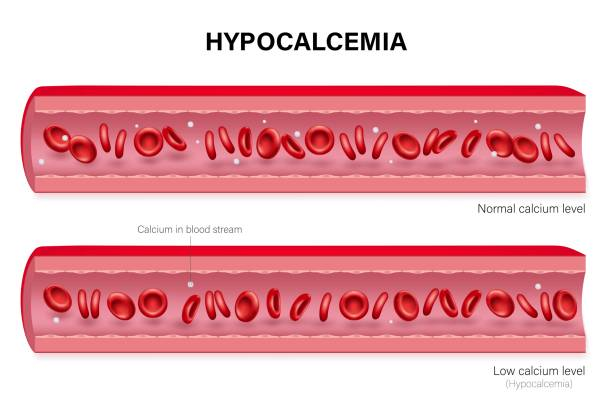Postoperative hypoparathyroidism is a frequent parathyroidectomy or thyroidectomy complication that causes disturbances of calcium and eventual long-term health issues.
Dr. Devendra Chaukar, one of Mumbai’s top Head and Neck Oncologist, stresses early treatment and diagnosis. “Patients who are undergoing thyroid or parathyroid operations need to be watched closely for calcium imbalance. Early intervention prevents complications and gives a smoother recovery trajectory.”
Here, we will be explaining why post-surgical hypoparathyroidism develops, its symptoms, diagnosis, and when to consult a doctor.
Hypoparathyroidism is a failure of the parathyroid glands to produce enough parathyroid hormone (PTH), resulting in low blood calcium levels (hypocalcemia) and high blood phosphorus (hyperphosphatemia). Because calcium is required for muscle and nerve function, a deficiency can result in significant symptoms and long-term effects.

Here’s what you should know…
Although hypoparathyroidism may occur due to autoimmune disease or hereditary conditions, it most often occurs due to injury or destruction of the parathyroid glands caused by surgery.
Causes of Post Surgical Hypoparathyroidism
Postoperative hypoparathyroidism is caused by accidental damage or removal of the parathyroid glands during neck surgery, especially thyroid, parathyroid, or neck tumor surgery.
Some of the most frequent procedures that can cause this condition include:
Thyroidectomy – Surgical removal of the thyroid gland, usually for cancer or hyperthyroidism.
Parathyroidectomy – Surgery to remove parathyroid glands in hyperparathyroidism.
Neck tumor surgery – Head and neck cancer surgery.

“Surgical technique is the mainstay to avoid hypoparathyroidism. With novel techniques, we try to preserve parathyroid function in successful tumor resection.”
Let’s unlock the messages your body tries to send you.
Symptoms of Post Surgical Hypoparathyroidism
Symptoms for postoperative hypoparathyroidism depend on the degree of calcium deficiency but may include:

Muscle spasms and cramps
- Numbness, tingling of fingers, toes, and lips
- Fatigue and weakness
- Depression, stress, or mood swings
- Brittle nails, hair loss, and dry skin
- Seizures (in severe cases)
If left untreated, calcium imbalance can lead to severe conditions like osteoporosis and irregular heart rhythm.
Having trouble with unusual symptoms after thyroid surgery? Start the road to good health—talk to a thyroid expert and have your questions answered today.
Post Surgical Hypoparathyroidism – Diagnostic Methods
If you have had neck surgery and have developed strange symptoms, your physician may order a series of tests to diagnose hypoparathyroidism:
Blood Tests – Calcium, phosphorus, magnesium, and PTH measurement.
Urine Tests – To measure the amount of calcium being excreted.
Bone Density Scan – To identify evidence of osteoporosis.

Mumbai’s renowned Head and Neck Onco Surgeon, Dr. Chaukar affirms, “Monitoring is very important. Early detection of low calcium levels helps us to change treatment plans and prevent long-term complications.”
Here’s how you’ll know when it’s time to take action.
When to consult a surgeon?
If you have repeated muscle weakness, cramping, or tingling after surgery, you should consult a doctor.
That’s the bottom line…
Post-operative hypoparathyroidism is a lifelong condition that needs to be treated, and early detection really enhances quality of life. An appointment with a skilled Surgical Oncologist will ensure you the proper treatment at the correct time.
Conclusion
Postoperative hypoparathyroidism is a serious but curable disease. Patients can lead normal lives with early diagnosis, proper supplementation, and modification of lifestyle.
Dr. Devendra Chaukar, commonly referred to as the Best Head and Neck Onco Surgeon in Mumbai, specializes in intricate thyroid and parathyroid surgeries to deliver the best possible result for his patients.
Still have questions? You’re not alone: lots of other people are wondering the same thing. Let’s clear up some common questions.
Frequently Asked Questions:
How does hypoparathyroidism affect calcium in the body?
Hypoparathyroidism leads to decreased secretion of parathyroid hormone (PTH), which reduces calcium absorption from food and from the bones, causing hypocalcemia (low calcium) and hyperphosphatemia (high phosphorus level in the blood).
What are the untreated complications of hypoparathyroidism?
If not treated, it can potentially cause osteoporosis, cataracts, arrhythmia, and neurological conditions such as seizures.
What are the diet changes to manage hypoparathyroidism?
You need a high-calcium diet in foods such as dairy products, leafy greens, and fortified cereals. Exclude foods high in phosphorus such as processed foods and colas.
What are the long-term therapies for hypoparathyroidism?
Management in the long term is with calcium and vitamin D supplements. Synthetic parathyroid hormone (PTH) therapy is used in certain cases.
Is hypoparathyroidism reversible or permanently curable?
Although some mild cases resolve over time, most patients need to be on lifelong calcium and vitamin D supplementation in order to effectively control symptoms.
References
https://www.mayoclinic.org/diseases-conditions/hypoparathyroidism/
Disclaimer: The information shared in this content is for educational purposes only and not for promotional use.

Dr Devendra Chaukar
Dr. Devendra Chaukar is a renowned Head and Neck Surgical Oncologist with over 20 years of experience in treating complex head and neck cancers. A graduate of Tata Memorial Hospital, Mumbai, he specializes in minimally invasive surgeries and organ-preserving treatments. Dr. Chaukar is deeply committed to patient-centric care and advancing cancer treatment through research and education.


Recent Comments